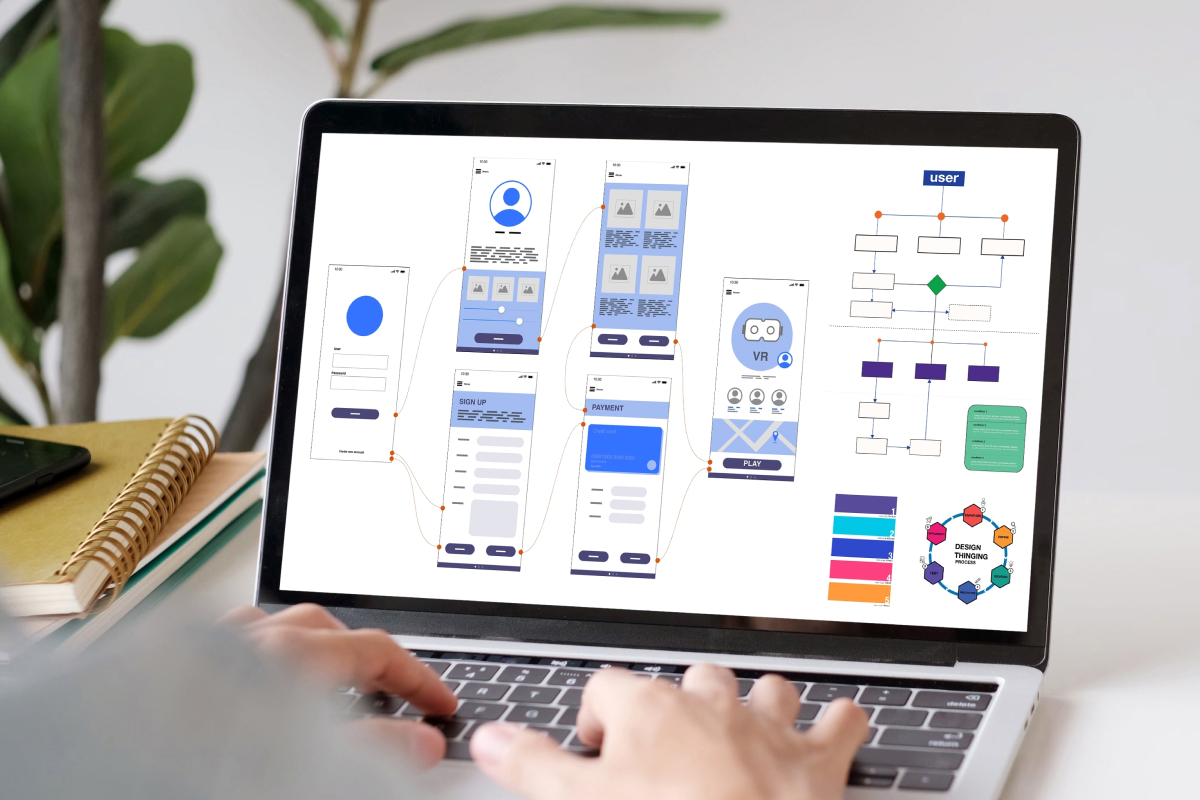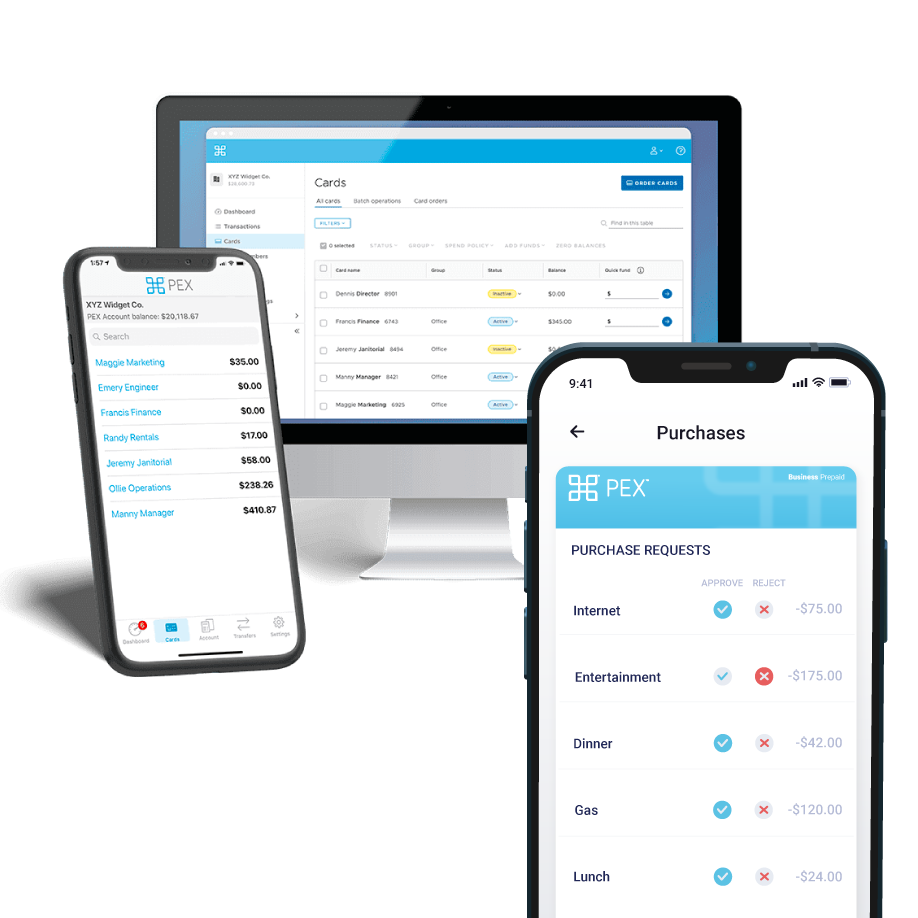In today’s financial services landscape, rapid innovation and exceptional customer experiences are more critical than ever. The rise of digitization and technology advancements has redefined financial transactions, with fintech partnerships playing a key role in this transformation.
What are Service-Oriented Fintechs
Service-oriented fintechs are companies that prioritize meeting specific customer needs through tailored financial solutions.
Unlike traditional financial institutions that often offer one-size-fits-all products, these agile companies focus on creating custom experiences that address unique challenges across various industries.
The impact of service-oriented fintechs extends beyond mere technological advancement. They are changing the very nature of financial services by:
- Putting customers first: By designing solutions around user needs rather than existing systems, these fintechs create more intuitive and efficient financial tools.
- Speeding up innovation: Unburdened by legacy systems, service-oriented fintechs can quickly develop and deploy new features in response to market demands.
- Enhancing accessibility: Through user-friendly interfaces and streamlined processes, these companies make financial services more accessible to a broader range of users.
- Fostering partnerships: By collaborating with traditional banks and other financial institutions, service-oriented fintechs create powerful alliances combining innovative technology with established trust and regulatory compliance.
As we explore the role of service-oriented fintechs in driving growth within the financial sector, we'll examine how these companies are not just disrupting the status quo, but actively shaping the future of finance.
From improving customer experiences to accelerating digital transformation, the influence of these innovative firms is far-reaching and profound.

The Rise of Service-Oriented Fintech
The financial technology sector has experienced remarkable growth in recent years, with service-oriented fintechs emerging as key players in this expansion.
According to McKinsey research, fintech revenues are projected to grow almost three times faster than traditional banking sectors between 2023 and 2028. This rapid growth is attributed mainly to the unique approach that service-oriented fintechs bring to the financial services industry.
What Makes a Fintech "Service-Oriented"?
Service-oriented fintechs stand out due to their focus on addressing specific pain points in the financial services ecosystem. Unlike traditional financial institutions or broader fintech companies, these specialized firms prioritize:
- Customization: They create tailored solutions for specific industries or business needs, rather than offering generic financial products.
- Agility: Service-oriented fintechs can quickly adapt their offerings to meet changing market demands and regulatory requirements.
- User Experience: They place a strong emphasis on creating intuitive, user-friendly interfaces and streamlined processes.
- Problem-Solving Approach: Rather than simply digitizing existing financial services, these companies seek to solve fundamental issues in how financial transactions and processes are conducted.
Key Characteristics of Service-Oriented Fintechs
Service-oriented fintechs are distinguished by several defining features that set them apart in the financial technology landscape. These characteristics shape their approach to problem-solving and product development and influence how they interact with clients and partners.
By understanding these key attributes, businesses can better appreciate the value that service-oriented fintechs bring to the table and how they might fit into their own financial strategies.
Here are the five primary characteristics that define these innovative companies:
- Customer-Centric Design: These companies start with the end-user's needs and work backward to create solutions rather than trying to fit customers into pre-existing product molds.
- Technological Innovation: Service-oriented fintechs often use cutting-edge technologies like artificial intelligence, blockchain, and advanced data analytics to create more efficient and effective financial tools.
- Collaborative Mindset: Many companies work closely with traditional financial institutions, creating partnerships combining innovative technology with established financial infrastructure.
- Specialization: Rather than trying to be all things to all people, service-oriented fintechs often focus on excelling in a specific area of financial services, such as payments, lending, or wealth management.
- Data-Driven Decision Making: These companies use advanced analytics to gain insights into user behavior and market trends, allowing them to continuously refine and improve their offerings.

The Impact on Traditional Financial Services
The rise of service-oriented fintechs pushes the financial services industry towards greater innovation and customer focus.
Traditional banks and financial institutions are increasingly partnering with or acquiring these fintech companies to enhance their service offerings and stay competitive in a rapidly evolving market.
This shift is creating a new financial services landscape where the lines between traditional and new providers are blurring, and where the focus is increasingly on providing customers seamless, efficient, and personalized financial experiences.
In the next section, we'll explore the benefits of service-oriented fintech partnerships to businesses across various industries.
Benefits of Service-Oriented Fintech Partnerships
Collaborating with service-oriented fintechs can provide significant advantages for businesses across various industries. These partnerships offer more than just access to new technologies; they can transform how companies operate, serve their customers, and compete in the market.
Here are the key benefits of engaging with service-oriented fintechs:
Tailored Solutions for Industry-Specific Challenges
Service-oriented fintechs excel at understanding and addressing the unique financial needs of different sectors. They create customized solutions that:
- Align with industry-specific regulations and compliance requirements
- Address particular pain points in financial processes
- Adapt to the workflow and operational needs of each industry
For example, a fintech specializing in healthcare might develop payment systems that integrate seamlessly with insurance claim processes, while one focusing on e-commerce could offer solutions that optimize cross-border transactions and currency conversions.

Rapid Innovation and Implementation
The agile nature of service-oriented fintechs allows for quick development and deployment of new features and services. This leads to:
- Faster adoption of cutting-edge financial technologies
- Ability to respond quickly to market changes and customer demands
- Continuous improvement of services based on real-time feedback and data
For instance, a fintech partner might help a retail business quickly implement a new contactless payment system in response to changing consumer preferences, or assist a bank in launching a blockchain-based cross-border payment solution to stay competitive in the remittance market.
Enhanced Customer Experience
By focusing on user needs and leveraging advanced technologies, service-oriented fintechs help businesses provide superior customer experiences:
- Intuitive and user-friendly interfaces
- Streamlined financial processes that save time and reduce frustration
- Personalized financial services tailored to individual customer needs
A real-world application could be a fintech helping an insurance company create a mobile app that allows customers to file claims, track their status, and receive payouts instantly, greatly improving the traditionally cumbersome claims process.

Cost Efficiency
Partnering with service-oriented fintechs can lead to significant cost savings:
- Reduced need for in-house development of financial technology solutions
- Lower operational costs through automation and optimization of financial processes
- Potential for new revenue streams through innovative financial products and services
For example, a small business might partner with a fintech to automate its invoicing and accounts receivable processes, reducing the need for manual data entry and freeing up staff time for more valuable tasks.
Competitive Advantage
Businesses that leverage service-oriented fintech partnerships can gain a significant edge over their competitors:
- Access to advanced financial tools that may be out of reach for smaller competitors
- Ability to offer unique financial services that differentiate the business in the market
- Improved agility in responding to market trends and customer needs
A practical example could be a regional bank partnering with a fintech to offer sophisticated wealth management tools typically only available through large national banks, thereby attracting and retaining high-value customers in their local market.
Robust Security and Compliance
Many service-oriented fintechs specialize in navigating the complex world of financial regulations and cybersecurity:
- Up-to-date compliance with evolving financial regulations
- Advanced security measures to protect sensitive financial data
- Reduced risk of financial fraud and data breaches
For instance, a fintech might provide a cryptocurrency exchange with advanced fraud detection algorithms and multi-factor authentication systems, ensuring compliance with anti-money laundering regulations while protecting users from potential cyber threats.

Data-Driven Insights
Service-oriented fintechs often provide powerful analytics tools that offer:
- Deep insights into customer financial behavior and preferences
- Ability to make data-driven decisions about financial products and services
- Improved forecasting and risk assessment capabilities
An example application could be a fintech partner helping a credit union analyze transaction data to identify members at risk of defaulting on loans, allowing the institution to offer financial counseling or restructuring options to prevent defaults proactively.
By leveraging these benefits, businesses can improve their financial operations and create new opportunities for growth and innovation. In the next section, we'll explore real-world examples of how companies have successfully partnered with service-oriented fintechs to achieve their business goals.

The Power of Understanding Business Needs
One of the biggest strengths of service-oriented fintechs is their ability to tailor solutions to the specific challenges faced by different industries.
Whether navigating healthcare regulations, retail’s demand for fast-paced service, or the high-security standards in financial institutions, fintechs that prioritize service ensure their solutions align with business needs.
At Softjourn, we've been at the forefront of service-oriented fintech solutions, helping our clients navigate the complex landscape of financial technology. Our expertise spans many critical areas, including systems integration, data orchestration, the development of robust integration layers, and the creation of custom APIs.
We've consistently delivered tailored solutions that bridge the gap between legacy systems and cutting-edge financial technologies.
Our work often involves intricate data management, seamless API integrations, and the development of scalable architectures that can handle the demanding requirements of modern financial services.
Whether it's creating middleware to connect disparate systems, developing secure payment gateways, or implementing complex data analytics solutions, we've helped our clients transform their operations and stay ahead in a rapidly evolving industry.
The following case studies illustrate how we've applied our expertise in these areas to solve real-world challenges for our clients, driving innovation and growth in various sectors of the financial services industry:
PEX: A Decade of Innovation in Expense Management
When PEX first approached us in 2012, they needed a mobile solution for corporate expense management. Over the years, PEX’s needs evolved as they grew, and they relied on Softjourn to build a scalable microservices architecture capable of managing sensitive cardholder data. Integrating with accounting platforms like QuickBooks and Slack, we provided PEX the ability to offer seamless, secure, and automated corporate payment solutions. Our focus on scalability and security has allowed PEX to continuously innovate and meet customer demand.

Expense Management: Seamless Integration for Global Expansion
Our long-term client in the expense management industry needed support with integrating services such as US Bank, Wise, and Finicity to offer multi-currency and open banking features. Before these integrations could be executed, significant architectural upgrades were required to ensure the system could support modern APIs and meet strict regulatory demands. Through close collaboration and system redesigns, we helped our client maintain compliance while launching new features rapidly to meet global demand.
Innovation at Speed
Fintechs have a reputation for being agile, quickly implementing innovative solutions without the burdens of legacy systems. When fintechs engage with a business’s needs and drive forward-thinking solutions, they deliver faster, more impactful results, particularly when integrating emerging technologies like AI and blockchain.
At Softjourn, we’ve seen this firsthand:
UPC: Innovating with Buy Now, Pay Later to Meet Consumer Demand
When UPC needed to quickly integrate a Buy Now, Pay Later (BNPL) feature into their payment gateway, Softjourn developed an installment payments API within their eCommerce Connect platform. This allowed UPC’s banking clients to offer BNPL options at checkout for both in-store and online purchases. By swiftly responding to market demand, UPC increased conversion rates and expanded its payment offerings, positioning themselves at the forefront of consumer-focused innovations in the financial services sector.

Silicon Valley Bank: Automating the "Impossible" Loan Origination Process
SVB needed a way to automate their complex loan origination process—a task that had previously seemed impossible. Through close collaboration, we developed an automated workflow that reduced manual effort, cut processing times, and improved accuracy. SVB not only saw operational cost savings but also established themselves as a leader in digital banking innovation.
Faster Go-to-Market Strategies
In financial services, speed is crucial. Service-oriented fintechs excel in rapid product deployment, enabling businesses to get new offerings to market faster than their competition. Efficient onboarding processes help companies reduce risk, secure market share, and respond quickly to customer needs.
Here’s how we’ve helped our service-oriented fintech clients accelerate their go-to-market strategies:
Card Tent: Scaling Business with Digital Payments Solutions
When Card Tent needed to quickly scale their digital payments platform, Softjourn’s expertise in custom API development and platform scalability allowed for a rapid rollout. By conducting an in-depth API discovery phase, we ensured that Card Tent could deploy a flexible eWallet platform that offered clients highly configurable payout options like bank transfers and P2P payments. This speed to market gave them a strong competitive edge.

Vanco Payments: Accelerating Platform Modernization with Strategic Planning
Vanco, a payment services provider for nonprofits, required assistance transitioning from Java to .NET while simultaneously developing new features. We helped Vanco establish a strategic roadmap for modernization, managing their platform rewrite and ensuring future integrations were planned efficiently. With our support, Vanco was able to release new features faster and stay ahead of evolving market demands.
Customer-Centric Fintechs
According to Accenture, companies that view customer service as a value center rather than a cost center see 3.5 times greater revenue growth.
Service-oriented fintechs are at the forefront of this shift, driving innovation and delivering exceptional customer experiences that lead to higher engagement and loyalty. By focusing on tailored, efficient solutions, these fintechs help businesses meet evolving customer demands, streamline operations, and enhance user satisfaction.
Here are examples of how Softjourn has embraced this service-first approach to support clients:
Bullet: Adapting to New Irish Payroll System Requirements
When Ireland updated its payroll regulations, Bullet sought Softjourn's expertise to rapidly adjust their accounting platform. We not only ensured compliance with the new legal standards but also enhanced the speed and user experience of payroll reporting. This collaboration shows how service-oriented fintechs can swiftly respond to regulatory changes while improving the customer experience.
Versapay: Zero Downtime, Maximum Performance
To address performance challenges in their database, Versapay partnered with Softjourn to seamlessly migrate to AWS Aurora. The transition was carried out without any service interruptions, significantly boosting scalability and efficiency. This example highlights how fintechs can deliver service excellence by solving complex technical issues while maintaining uninterrupted service for their customers.

Final Word
As the financial services sector continues to evolve, businesses must look to service-oriented fintech partnerships to stay ahead.
Collaborating with experienced software development companies like Softjourn enables organizations to innovate quickly, address customer needs, and deliver enhanced experiences across financial products.
By focusing on service excellence and strategic alignment, businesses can maximize the value of their fintech collaborations, ensuring long-term success in a competitive market.
















